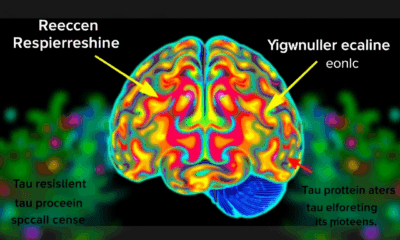While we try to keep things accurate, this content is part of an ongoing experiment and may not always be reliable.
Please double-check important details — we’re not responsible for how the information is used.
Borderline Personality Disorder
Nurturing Now, Thriving Later: The Lasting Power of Affectionate Mothering
Affectionate mothering in childhood may have a lasting impact on important personality traits, potentially influencing life outcomes such as educational achievement, economic success, and health and well-being, according to new research. The findings suggest that positive maternal parenting could foster important traits such as openness, conscientiousness and agreeableness.

Behavior
The Power of Emotional Expression in the Workplace
The way people express emotions while helping others can influence whether their assistance is welcomed, resented, or reciprocated, according to new research.
Attention Deficit Disorder
Personalizing Bipolar Disorder Treatment: Unlocking the Potential of Personality Tests
A new study suggests that it might be possible to personalize care for people with bipolar disorder, using the results of detailed personality tests. It finds that such tests might help identify people who have certain combinations of personality traits that could raise or lower their risk of repeated depressive episodes or poor functioning in everyday life.
-

 Detectors3 months ago
Detectors3 months agoA New Horizon for Vision: How Gold Nanoparticles May Restore People’s Sight
-

 Earth & Climate4 months ago
Earth & Climate4 months agoRetiring Abroad Can Be Lonely Business
-

 Cancer4 months ago
Cancer4 months agoRevolutionizing Quantum Communication: Direct Connections Between Multiple Processors
-

 Agriculture and Food4 months ago
Agriculture and Food4 months ago“A Sustainable Solution: Researchers Create Hybrid Cheese with 25% Pea Protein”
-

 Diseases and Conditions4 months ago
Diseases and Conditions4 months agoReducing Falls Among Elderly Women with Polypharmacy through Exercise Intervention
-

 Albert Einstein4 months ago
Albert Einstein4 months agoHarnessing Water Waves: A Breakthrough in Controlling Floating Objects
-

 Chemistry3 months ago
Chemistry3 months ago“Unveiling Hidden Patterns: A New Twist on Interference Phenomena”
-

 Earth & Climate4 months ago
Earth & Climate4 months agoHousehold Electricity Three Times More Expensive Than Upcoming ‘Eco-Friendly’ Aviation E-Fuels, Study Reveals




























